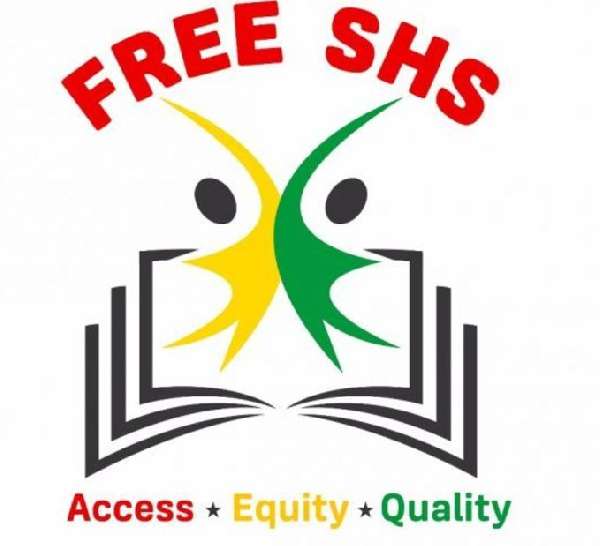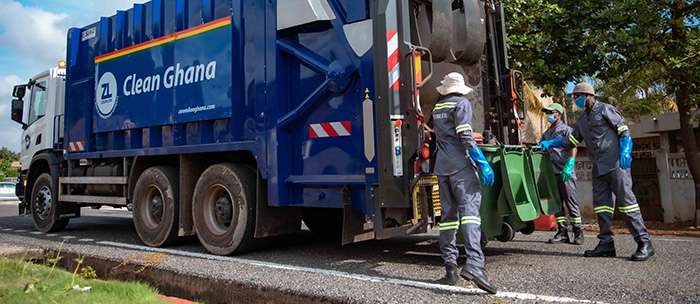The Greater Accra Regional Organizer of the ruling New Patriotic Party (NPP), Prince Obeng, has urged Ghanaian electorates to reject any flagbearer who does not support the Free Senior High School (SHS) policy.
He indicated that a vote for former President John Dramani Mahama who is also the flagbearer of the opposition National Democratic Congress (NDC) is a threat to the sustainability of the Free SHS policy.
Prince Obeng, addressing the NPP faithful at the launch of a volunteering group regarded as ‘Winning Champions’ in Ablekuma South, touted the achievements of the NPP administration especially in the education sector.
Furthermore, he highlighted the number of Science, Technology, Engineering, and Mathematics (STEM) and Senior High School (SHS) the government has built and the fact that the implementation of the Free SHS policy has relieved parents of the struggle of going for loans to pay school fees.
”I am urging the youth especially those who have enjoyed the Free SHS program to be vigilant so that they don’t fall for NDC’s false-hearted campaign tactics. They only want to come to power to downplay the relevance of the free SHS.
Prince Obeng
He used the opportunity to advise the general public to partake in the upcoming limited voter registration exercise slated for Tuesday, May 7 by the Electoral Commission (EC).
He similarly challenged individuals who have turned 18 years old since the last registration to take advantage of the 21-day exercise to be enrolled onto the national album to get the opportunity to vote in the 2024 polls.
Meanwhile, the former President, John Dramani Mahama, is reported to have emphasized the need for a review of the Free SHS policy to improve its implementation.
He has promised to engage stakeholders should he win the 2024 general elections to review the policy to improve its implementation. He assured the public that teachers, parents, and students will fully experience the advantages of the policy when reviewed.
Free SHS Policy Needs Revision
Moreover, experts believe that the Free Senior High School (SHS) policy initiative needs to be reviewed as the policy’s implementation has been plagued by inadequate infrastructure, leading to overcrowding and strain on existing facilities.

Furthermore, the policy’s funding model is unsustainable, relying heavily on government subsidies, which can be unpredictable. This has resulted in delayed payments to schools, affecting their ability to operate effectively.
More so, the policy’s blanket approach does not consider the diverse needs and abilities of students. It assumes that all students are suited for academic programs, neglecting those with vocational or technical skills. This has led to a mismatch between graduates’ skills and labor market demands.
As such, the policy’s focus on access has compromised quality. The rush to increase enrollment has led to a shortage of qualified teachers, affecting the quality of education and the policy’s lack of a clear exit strategy has raised concerns about its long-term sustainability.
Experts argue that a review of the policy could address these challenges, ensuring that the laudable aim of increasing access to education is balanced with quality and sustainability considerations.
According to Eduwatch Africa, the Free SHS policy regime costs parents and guardians more financially to support their wards in school than the payment regime before it as parents bear 70% of the cost while the government takes care of the remaining 30%.
Eduwatch Africa further noted that the current implementation of the Free Senior High School (SHS) policy has a critical flaw as its funding structure, which requires parents or guardians to pay an average annual fee of GH₵ 12,000.00, creates a financial barrier for JHS graduates from low-income families.
This financial burden prevents many students from accessing secondary education, thereby undermining the policy’s intended goal of increasing access to education for all.
A revised policy could, therefore, explore alternative funding models, prioritize infrastructure development, and introduce a more nuanced approach to catering to students’ diverse needs.





















